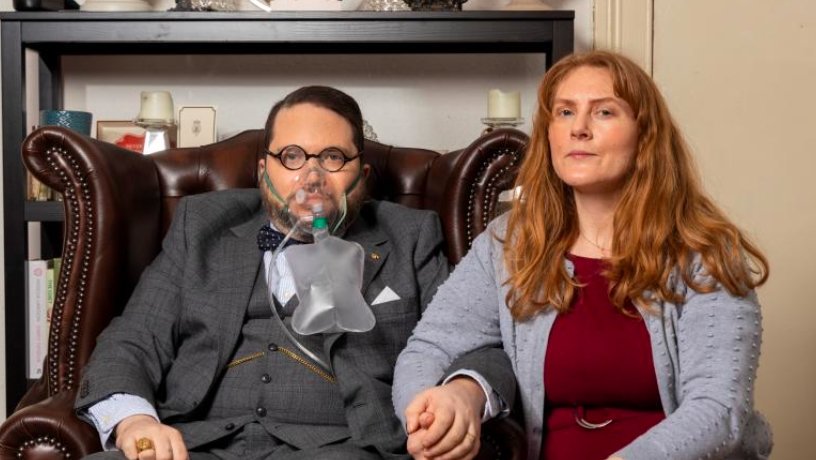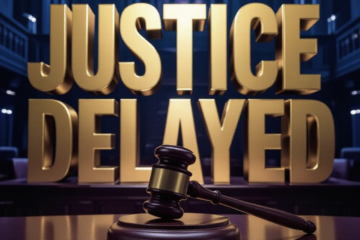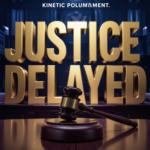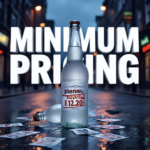Nicholas Rossi’s life story reads like a plot stolen from a paperback thriller—complete with a fake name, international pursuit, and an unmasking in a Scottish hospital ward. Now, the man once calling himself “Arthur Knight” is preparing to stand trial in Utah on a rape charge.
When I first met him, it was in the genteel surroundings of Glasgow’s West End, a place of leafy streets and understated cafés. He wore the persona of a flustered British aristocrat, complete with a wandering accent and a theatrical air. But there were cracks in the performance, and they showed quickly.
The First Red Flags
One of the earliest came in a casual comment. Rossi told me he “never watched television” and that the medium was something of a mystery to him. Minutes later, he mentioned Kay Burley, one of my Sky News colleagues at the time, saying he hoped he wouldn’t be “nailed to the wall” by her in an interview.
It was a slip that made me pause. How could a man supposedly detached from TV know the name—and interviewing style—of a prime-time presenter in the UK?
Then came the jargon. He asked how we would “chyron” him. It’s an American newsroom term for the on-screen text used to label interview subjects. I work in broadcasting and I’d never heard it outside the U.S.

The Man Behind “Arthur Knight”
By that point, Scottish authorities were already suspicious. Rossi had been in hospital after contracting COVID-19, where staff noticed tattoos matching those of a fugitive wanted in the U.S. for rape and other charges. His story—that he was an Irish orphan who had never set foot in America—didn’t hold up under closer scrutiny.
In Utah, prosecutors say Rossi raped a woman in 2008. He has also faced fraud allegations in multiple states. His flight from justice took him across continents before ending—unexpectedly—in a Glasgow hospital bed.
The extradition process was long and public. Rossi fought it at every turn, claiming mistaken identity and accusing U.S. authorities of targeting the wrong man. Scottish courts ultimately ruled against him.
A Performance Under Pressure
Interviewing him was part conversation, part theatre. He had an answer for everything, often delivered with the kind of flourish that seemed intended to distract from the substance.
Sometimes it worked. He’d lean on his cane, adjust his tie, or throw in a long, dramatic pause. But then the Americanisms would creep in—the inflection of a word, the use of a phrase like “grocery store” instead of “supermarket.”
To be in his company was to constantly toggle between disbelief and recognition. You knew, on some level, you were speaking to the man the FBI wanted. And yet, he was doing everything to convince you otherwise.
The Moment of Unmasking
Rossi’s downfall came, fittingly, through something as unplanned as a medical emergency. In the ward, without the careful dress and accessories of “Arthur Knight,” the tattoos were there for all to see. They matched photographs held by U.S. law enforcement.
From that point on, the legal machinery moved steadily—if slowly—toward extradition. Rossi tried every avenue, from appeals on human rights grounds to claims of poor health. None stopped the eventual transfer.
Now, a Trial in Utah
In Utah, Rossi will face a jury on a charge of raping a woman in 2008. Prosecutors have said they have DNA evidence linking him to the crime, along with witness testimony. His defence maintains the wrong man has been accused.
The case is expected to attract significant media attention, partly because of the bizarre Scotland chapter and partly because Rossi’s own behaviour over the years has fed the narrative.
| Key Dates in the Rossi Case | Event |
|---|---|
| 2008 | Alleged rape in Utah |
| 2010s | Fraud allegations in multiple U.S. states |
| 2021 | Identified in Glasgow hospital as fugitive |
| 2022–2024 | Fights extradition in Scottish courts |
| 2025 | Extradited to Utah, trial scheduled |
Sitting across from Rossi, it was clear he had studied how to play a role. The accent, the mannerisms, the curated backstory—they weren’t random. They were calculated to create distance between him and the American Nicholas Rossi.
But the cracks were unavoidable. Accents slipped. Details contradicted each other. And, occasionally, his frustration with certain lines of questioning would flash across his face before being quickly buried under charm.
Scotland’s Part in the Story
For Scotland, the case was a peculiar moment in legal history. Extradition battles are usually low-profile, but Rossi’s case became part courtroom drama, part media spectacle.
The setting—a quiet corner of Glasgow—made it even stranger. Here was a man claiming to be a local figure of faded nobility, while U.S. authorities described him as a career criminal hiding in plain sight.
What Stays With You
What I remember most isn’t a single moment, but the sense of performance running through it all. Rossi seemed to believe that if he could control the narrative, he could change the outcome.
But reality has a way of cutting through theatre. In the end, it was a simple matter of matching ink on skin to a fugitive file that pulled down the curtain.


















